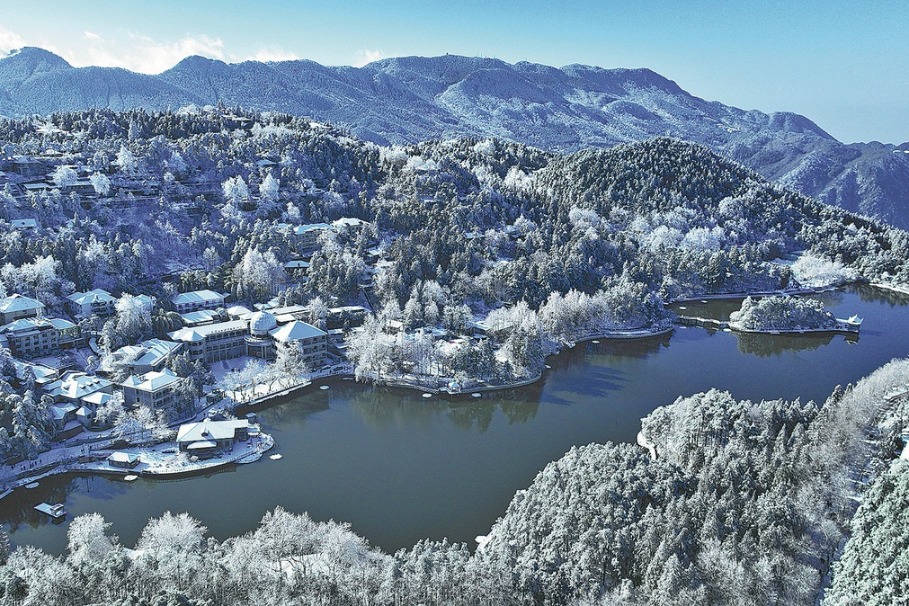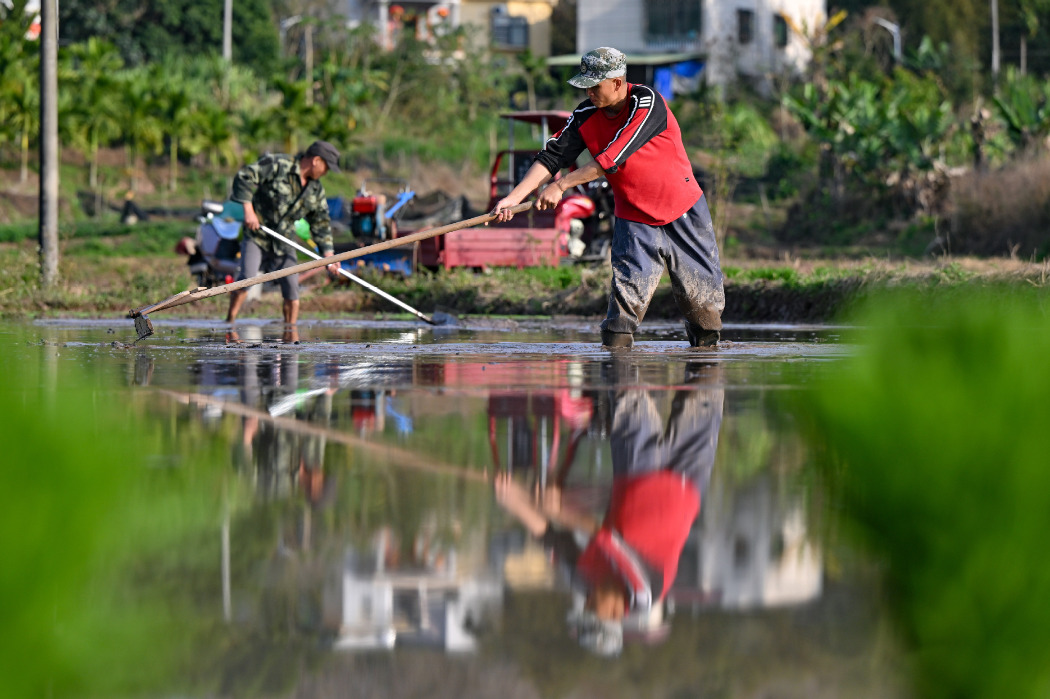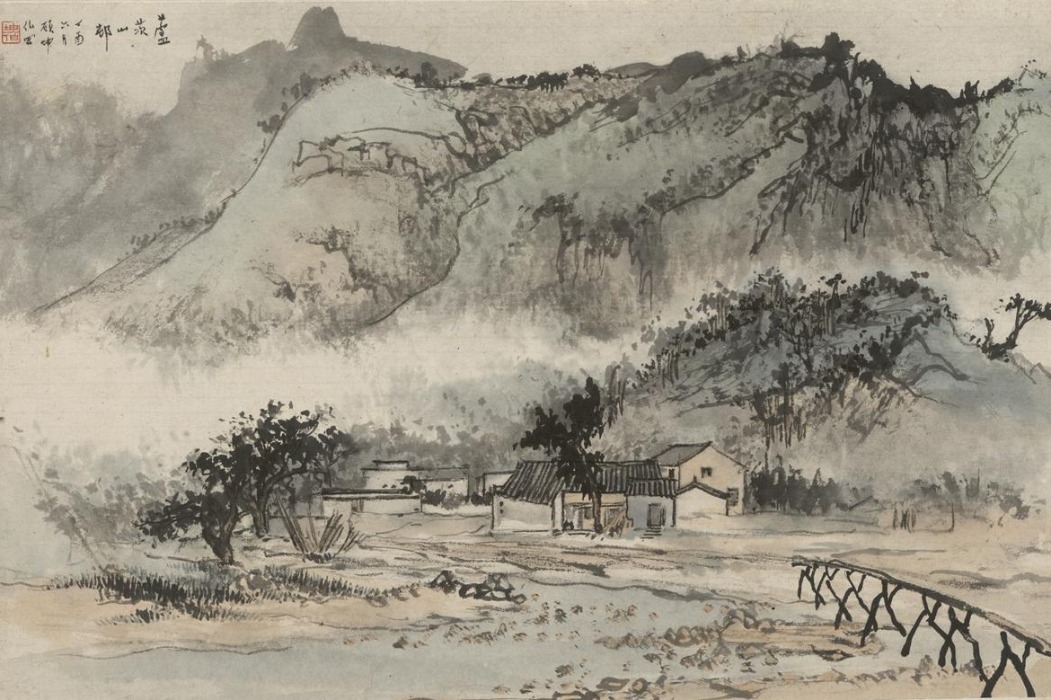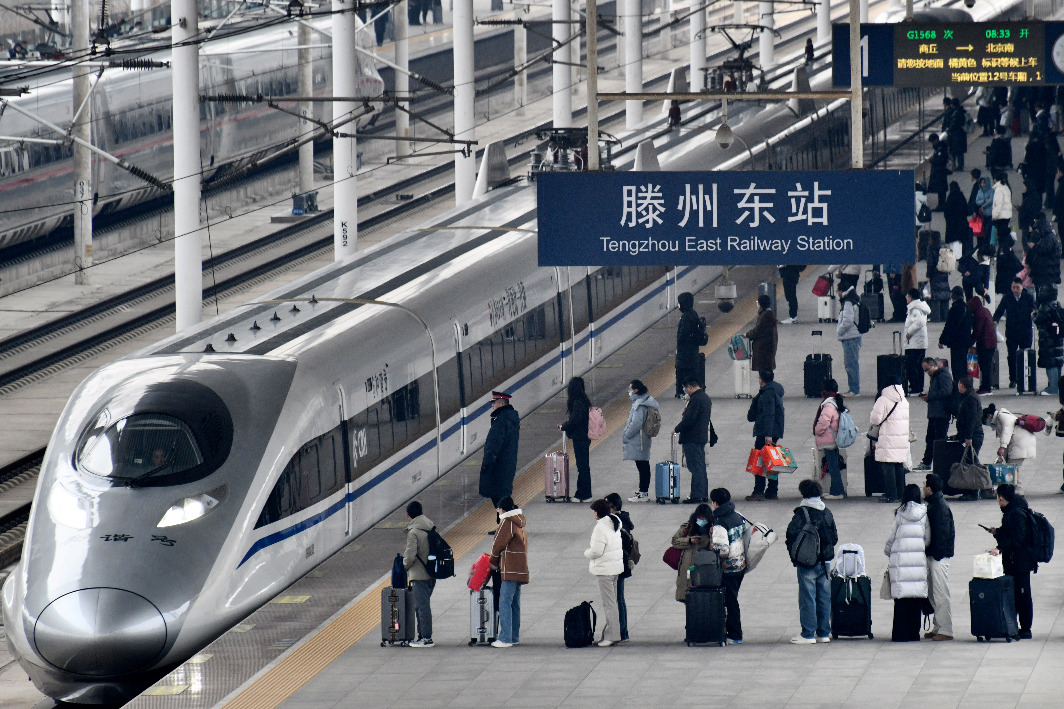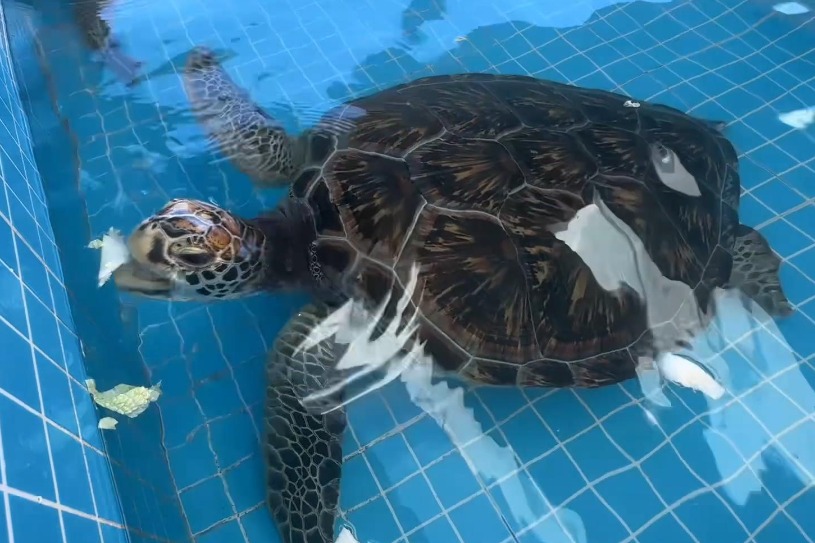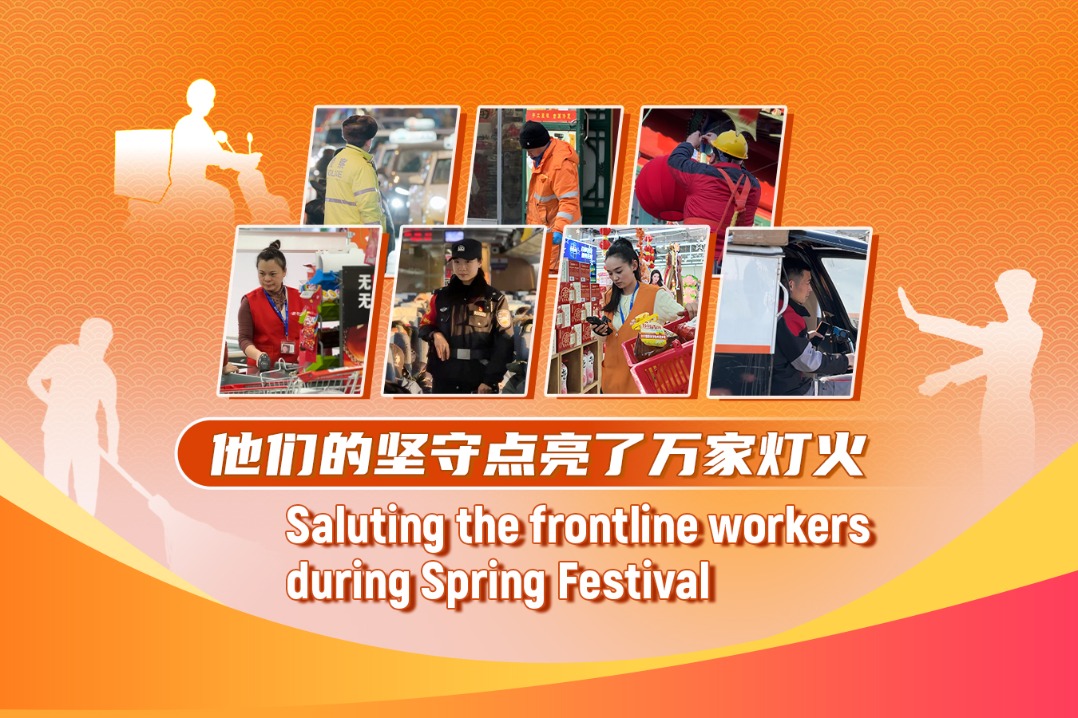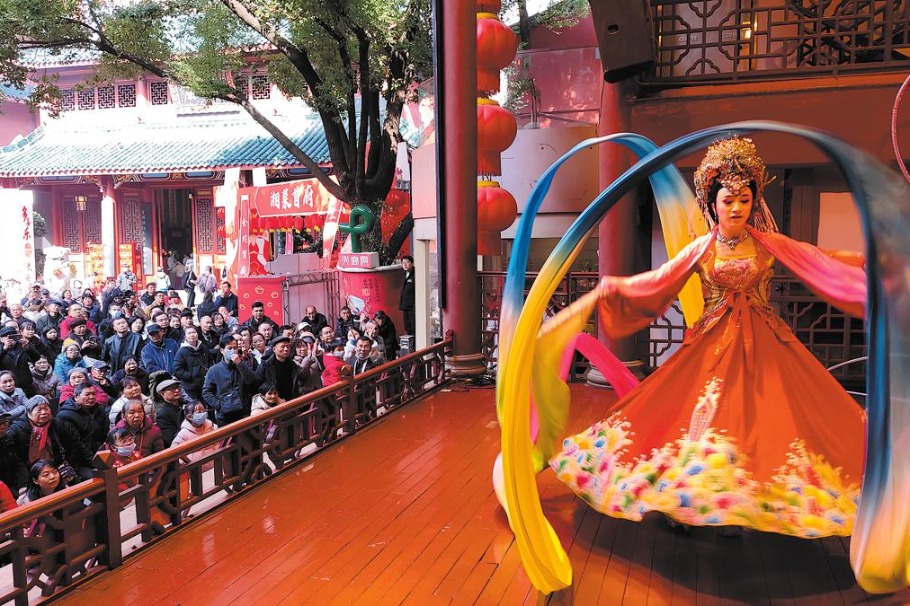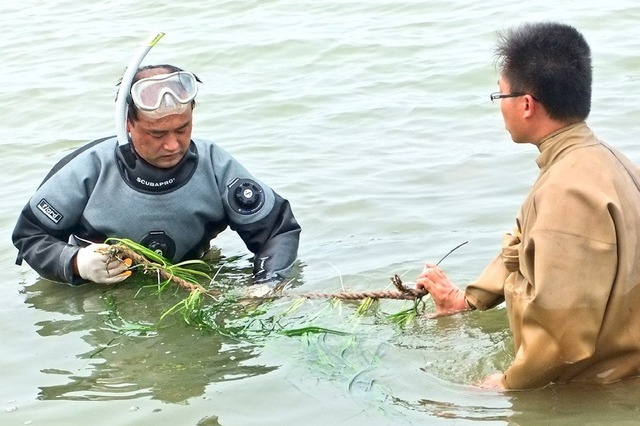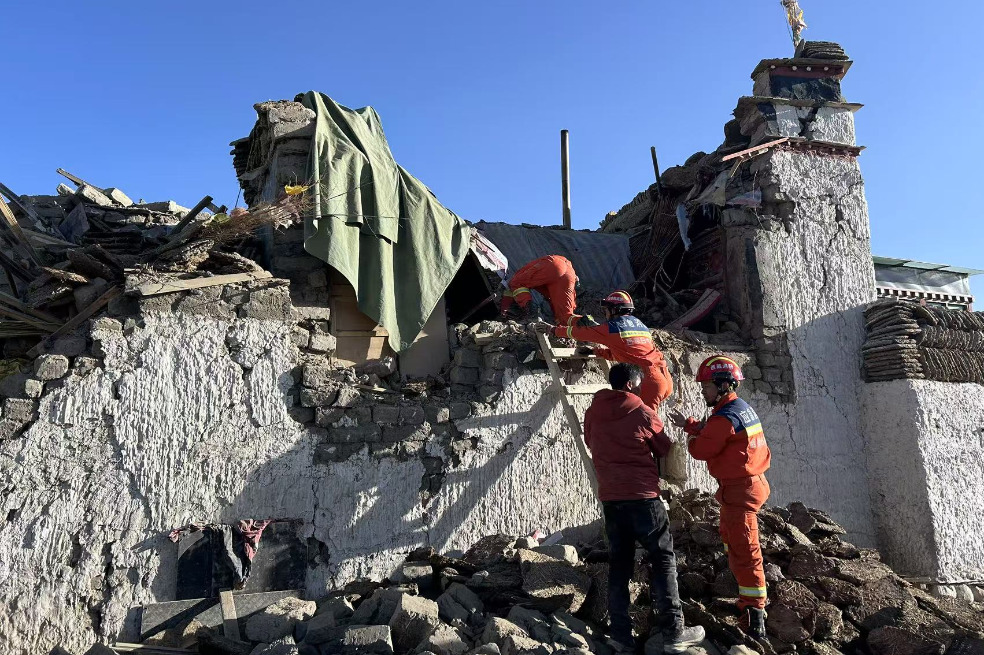Volunteers use AI to help reunite families from mainland, Taiwan

A team of volunteers from both sides of the Taiwan Strait is using artificial intelligence to help reunite families.
The AI Baby volunteer service team, founded by doctoral student Sheng Jianzhong from Huazhong University of Science and Technology in Wuhan, Hubei province, has successfully helped 19 children reconnect with their families and has provided hope in the cases of more than 1,000 others by restoring photographs of missing relatives.
Sheng, who specializes in digital image processing, was inspired to launch the initiative in 2020 after watching a television program that featured blurry photos of missing children. Recognizing the challenge posed by unclear images, he assembled a team of like-minded students to develop an AI system capable of restoring them.
After six months of development, the team launched a platform that employs comprehensive restoration, facial enhancement and super-resolution reconstruction to transform indistinct images into clear, recognizable pictures. The enhanced images are then shared online, printed on clothing or displayed on large posters, significantly increasing the chances of a successful reunion.
Rather than merely restoring photos, the team uses AI to re-create them, Sheng said.
"We call it restoration to make it more understandable to people. Actually, the pictures are created by AI, and they are so similar to the originals that we cannot tell the difference," he said. "We can also create short videos using the pictures, so they appear to move."
Their photo restoration efforts are not limited to pictures of children. One of the team's most notable successes was the case of Sun Haiyang, whose son, Sun Zhuo, was abducted in 2007 while playing in front of his home in Shenzhen, Guangdong province. The only lead was a grainy surveillance image of the abductor, which was too unclear to identify anyone.
The team enhanced the image, enabling police to track down the kidnapper and reunite Sun Zhuo with his overjoyed father in 2021. A grateful Sun Haiyang emphasized that the team's efforts and technology rekindled his hopes after he had spent years searching for his son.
Shared commitment
Since its founding, the team has grown from four members to a core team of more than 30, supported by a network of 300 temporary volunteers. Their services are free and driven by a shared commitment to reuniting families.
The team's impact extends across the Strait, with students from Taiwan joining the effort to help people on the island reconnect with mainland relatives.
One such case involved Liang Chin-wei, a young man from New Taipei City whose grandfather, Liang Ju-ta, was originally from Yangxin county, Hubei province. After Liang Ju-ta's passing, his family lost contact with relatives on the mainland.
In 2018, Liang Chin-wei traveled to Wuhan to study and began searching for his family in Yangxin. Based on available clues, the Taiwan Affairs Office of Hubei helped locate early photos of Liang Ju-ta with his nephews.
However, the images were blurry and the faces were hard to distinguish. The AI Baby team restored the photos, allowing for a successful comparison, and in May last year, Liang Chin-wei was reunited with his long-lost relatives.
Yen Hsu-hui, a Taiwan-born volunteer who witnessed Liang's reunion, said he was deeply moved. His mother, who works in elderly care in Taiwan, often interacts with elderly individuals who were originally from the Chinese mainland.
"Some of them manage to find their relatives on the mainland, while others pass away with regrets," Yen said.
Having joined the volunteer team nearly a year ago, Yen primarily liaises with families searching for their relatives and collects information for the searches. He frequently introduces AI-based family search methods to his relatives and friends in Taiwan, with his mother also helping to spread the word.
Chang Shao-lin, a 20-year-old volunteer from Taiwan, said: "I chose to become a volunteer because I want more people to find their roots, just like I did." Her grandfather was originally from Wuhan, and after cross-Strait relations improved, her family reconnected with their mainland relatives using photos, addresses and genealogical records. Today, her relatives on both sides remain in close contact.
Tech upgrade
The team is also ramping up the technology it uses. Chen Hung-hsiu, a 22-year-old from Taiwan and a member of the technical group, is working on an algorithm for face recognition that accounts for aging.
Even if a search for relatives is unsuccessful, the technology can generate images showing what they might look like at different stages of life, helping to partially fill the emotional void and alleviate the pain of separation.
Sheng, the founder of the AI Baby volunteer service team, said the team has developed a mini-app incorporating AI technology to help people find missing relatives. He hopes to secure public funding to expand and improve the app's capabilities.
- Top court intensifies crackdown on cross-border telecom fraud
- Chinese nurse praised for treating passenger on flight to Ireland
- Visit Lushan, other scenic spots for free in Jiangxi
- Aviation law to be amended with major revisions
- Government support helps people in need find meaningful work
- Yungang Grottoes boosts English language services
















